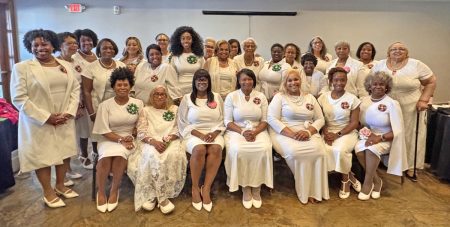Reparations Must Rest on Rock-Solid Foundation
None of us will be free until all of us are free.
My name is John Huie, one citizen of Asheville.
I’m not an expert on reparations and don’t know anyone who is. But I know this: Asheville has an opportunity, a responsibility, and a moral obligation to do Reparations right—and the Reparations Commission members are hard at it on behalf of all of us who care.
Thousands of us white folk in Asheville want to double down as unflinching allies of the Reparations Commission and of the Black community. We celebrate the work of the Commission. We—many of us—are highly aware that none of us will be free until all of us are free. The work the Commission is doing is liberating for all of us.
Life in the Epicenter of Jim Crow
I was born and raised in Albany, Georgia, the epicenter of Deep South slavery. I grew up there in the 1950s, the era of rigid segregation. Somehow, I did not grow up hating or fearing Black people. My friends in high school considered me a “race traitor” and likely a Communist. And I was fortunate to learn perseverance and spirit from Black people, in particular one woman named Fannie May Bob. I acknowledge her here with gratitude.
When Martin Luther King, Jr. and SNCC volunteers marched in the streets of Albany, Georgia, in 1961, I was there watching—but I did not march with them. I took no risk.
During those SNCC protests, when two young Black men about my age (24 years old) were on trial for trying to integrate the Albany city buses, I attended the trial. I sat on the “white side” of the small courtroom. Right in the middle of proceedings, two SNCC workers stood up and moved from the “Black section” to the white side. My instinct was to stand up and move to the Black section. I knew that would have a dramatic effect. I slid forward in my seat as three Albany policemen moved swiftly to drag the two young Black men from the courtroom. I did what we white people usually do—hesitated, held back, took no risk. I slumped back in my seat.
The Courage to Stand Up
I apologize to the Black community for failing to stand up more forthrightly and courageously when I have had opportunities to do so, in distant, and more recent, decades.
Now, I am standing up. I believe the work of the Reparations Commission has to be based on the white community’s full acknowledgement of truth. I ask this question: Has the City Council’s and County Commission’s acknowledgment of historic truth gone far enough to give the Reparations Commission the rock-solid foundation that will make the work of the Reparations Commission sustainable?
Acknowledgement and …
For myself I answer:
I acknowledge the unspeakable cruelty that my ancestors perpetrated on your innocent ancestors…slavery, the middle passage, whippings, lynchings, murders, intimidation, dehumanization, and brutality beyond words…
I acknowledge the perpetuation of that blatant cruelty—in our laws, our schools, our churches, our government, our businesses, our red-lining, our norms and attitudes, our habits, our culture…
I acknowledge the callous neglect, injustice, and, yes, cruelty which continue today here in Asheville.
And I acknowledge the words of Rob Thomas: “The urgency of this moment cannot be overstated.”
My fellow white citizens have to grasp this urgency and stand up for the comprehensive disparity studies in each of the five impact focus areas: economic development, education, housing, public safety, and public health. Then there must be swift action to rectify the historic injustices that plague our community. The time for repair is now.
… Commitment
With some of the perseverance that I learned from Fannie Mae Bob, I have aspired to be an increasingly effective anti-racist over the decades, and I’m still working on it.
So I commit … to understanding my whiteness and how—very shamefully, though too often with no shame—those of us with white skin keep ourselves shielded and blinded from the realities of race and caste.
I commit to contribute every way I can to support equity and justice for all—and to vigorously support candidates and office holders who are steadfast on reparations. There are thousands of us who celebrate the integrity of the work the Reparations Commission is doing, and who yearn for the Commission’s success. We want to be your unflinching allies standing with you on a rock-solid foundation.
Repairing the Faults from Our Past
In the words of the brilliant young poet Amanda Gorman: “Being American is more than a pride we inherit; it is the past we step into and how we repair it.”
Editor’s Note: Mr. Huie submitted this statement to the Asheville-Buncombe County Reparations Commission on Feb. 19, 2024.







